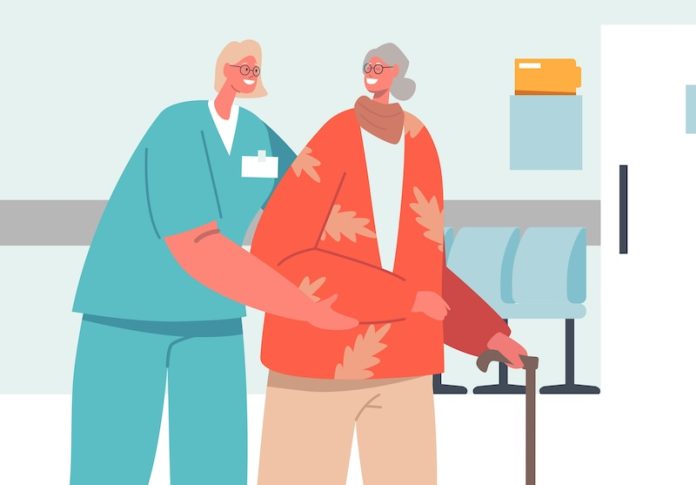
Parkinson’s disease is a brain disorder that leads to shaking, stiffness, and difficulty with walking, balance, and coordination.
It progresses gradually, making symptoms worse over time.
While we don’t have all the answers, researchers have made significant strides in understanding the common causes of this challenging condition.
At its core, Parkinson’s disease involves the loss of nerve cells in a part of the brain called the substantia nigra.
These cells produce dopamine, a chemical that helps control movement and coordination. When these cells die or become impaired, dopamine levels drop, leading to the symptoms of Parkinson’s.
So, what leads to the loss of these crucial cells? The answer isn’t straightforward, as various factors likely contribute to the development of Parkinson’s.
Genetics plays a role, though it’s more significant in some people than others. In about 10% of cases, Parkinson’s disease is clearly linked to specific genetic mutations. Researchers have identified several genes that can influence the risk of developing the disease.
For example, mutations in a gene called LRRK2 are among the most common genetic causes. However, having a relative with Parkinson’s does not guarantee you will have the disease; it only slightly increases your risk.
Environmental factors also contribute to the risk of developing Parkinson’s. Exposure to certain toxins, such as pesticides and herbicides, has been linked to an increased risk.
Studies have shown that people who use these chemicals or live near areas where they are used extensively have a higher likelihood of developing the disease.
Age is the most significant risk factor. The majority of people who develop Parkinson’s are over 60 years old. As we age, the risk of many neurological diseases increases, possibly due to the general wear and tear on our cells over the years.
Interestingly, lifestyle factors can also influence risk. There’s evidence suggesting that regular caffeine consumption and physical exercise might reduce the risk of developing Parkinson’s.
Researchers believe that caffeine’s protective effects might be related to its ability to enhance dopamine signaling in the brain. Exercise might help by keeping the brain and its connections flexible and resilient.
There’s a fascinating body of research linking gut health to Parkinson’s. Studies have found that people with Parkinson’s often have different types of bacteria in their guts compared to people without the disease.
These differences might influence the development of Parkinson’s by affecting the gut-brain axis, a pathway through which the gut communicates directly with the brain.
As daunting as Parkinson’s disease can be, understanding these common causes offers hope. It guides researchers in developing new treatments that could potentially slow or prevent the progression of the disease.
For instance, if pesticides are linked to Parkinson’s, reducing exposure could be a preventative measure. Likewise, exploring genetic causes can lead to personalized treatments that target specific pathways involved in the disease process.
In conclusion, Parkinson’s disease is a complex disorder with no single cause. It results from a mix of genetic, environmental, and lifestyle factors.
While there’s still much to learn, ongoing research continues to unravel the mysteries of Parkinson’s, offering glimpses of new ways to tackle the disease.
Through a better understanding of its causes, we move closer to more effective interventions that could one day lessen the burden of this debilitating condition.
If you care about Parkinson’s disease, please read studies that Vitamin B may slow down cognitive decline, and Mediterranean diet could help lower risk of Parkinson’s.
For more information about brain health, please see recent studies that blueberry supplements may prevent cognitive decline, and results showing Plant-based diets could protect cognitive health from air pollution.
Copyright © 2024 Knowridge Science Report. All rights reserved.



